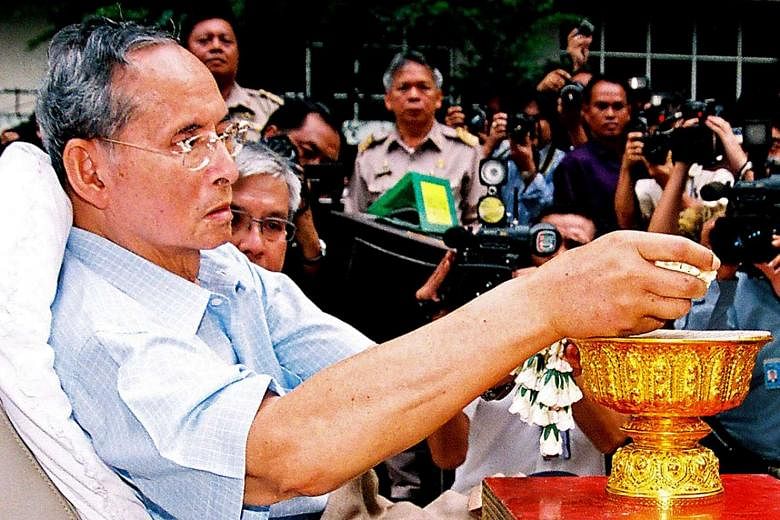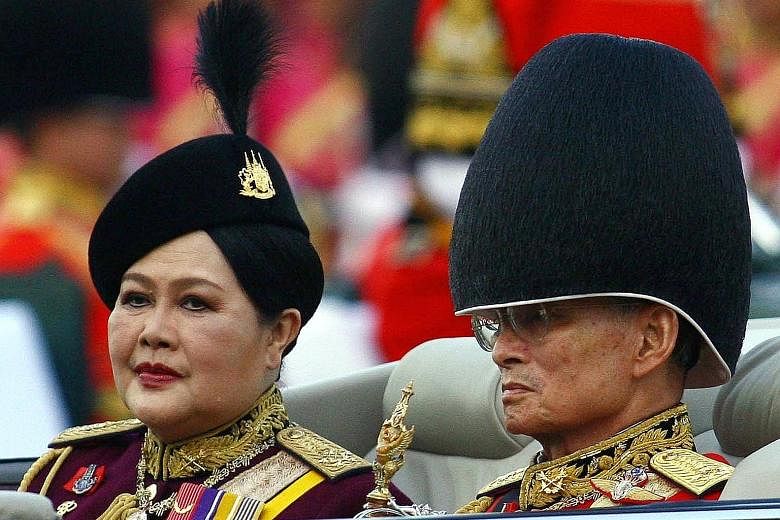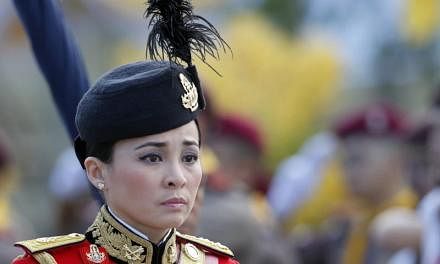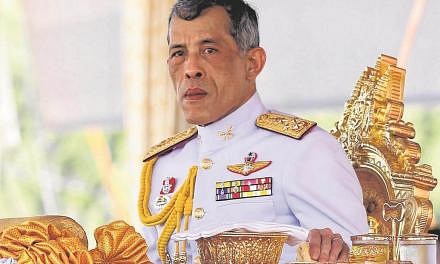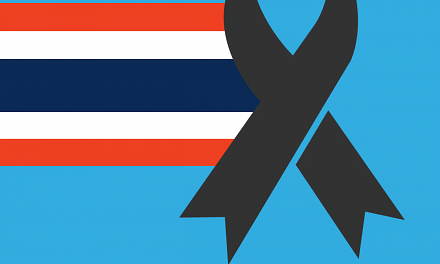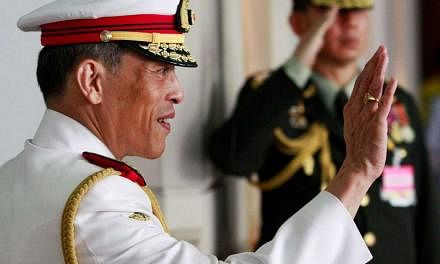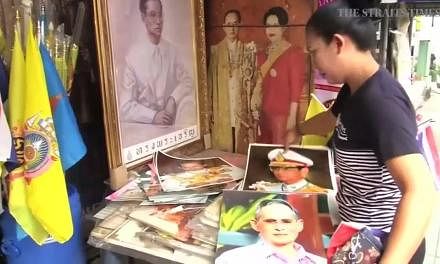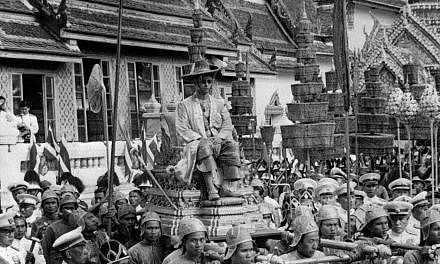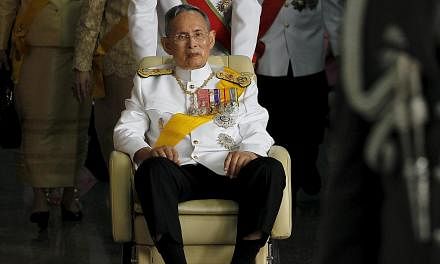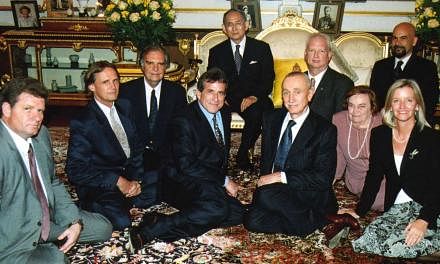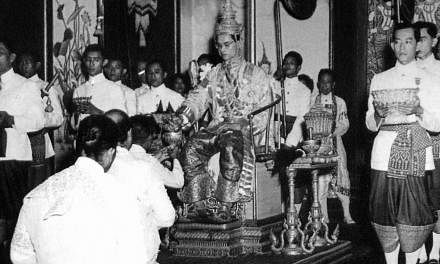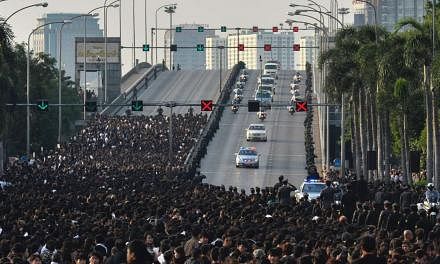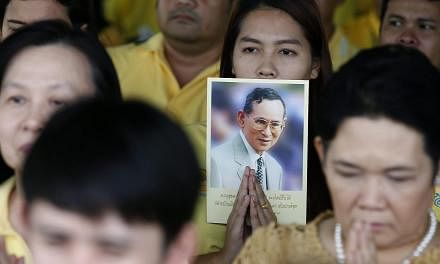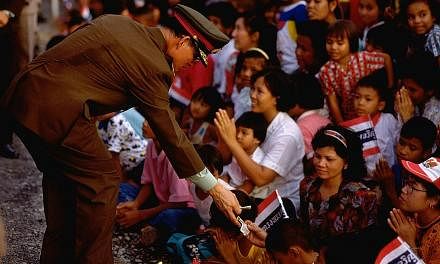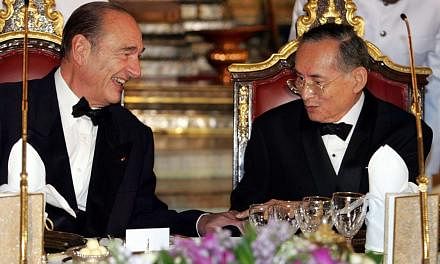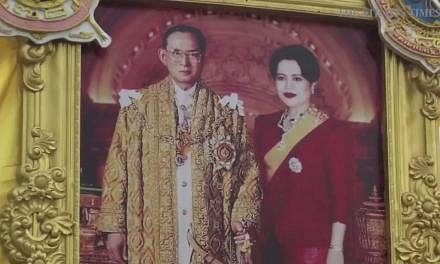Thailand's royal anthem, rather than its national anthem, is played alongside other countries' national anthems at embassy functions in Bangkok.
It comes on before every movie screening in commercial cinemas, paired with poignant images of a younger King Bhumibol Adulyadej interacting with people in far-flung corners of the land.
While failing health might have limited his public appearances in recent years, he remained omnipresent. Thais still could see their king on billboards and portraits that adorn street corners and the walls of offices and households.
His ideas, notably that of a "self-sufficiency" economic model, are promoted by the state.
King Bhumibol, 88, reigned for 70 years. For the majority of Thais who have known only one monarch amid decades of political turbulence, his death yesterday represents the loss of a moral authority and emotional anchor.
It foregrounds an already growing question of how they want to be governed in a country that staved off colonial domination, only to see the entrenchment of the traditional elite. In theory, Thailand is a constitutional monarchy, but King Bhumibol was more than a constitutional monarch, says historian Charnvit Kasetsiri. His wishes were heeded closely and he was "a balancing force for all kinds of problems within the country".
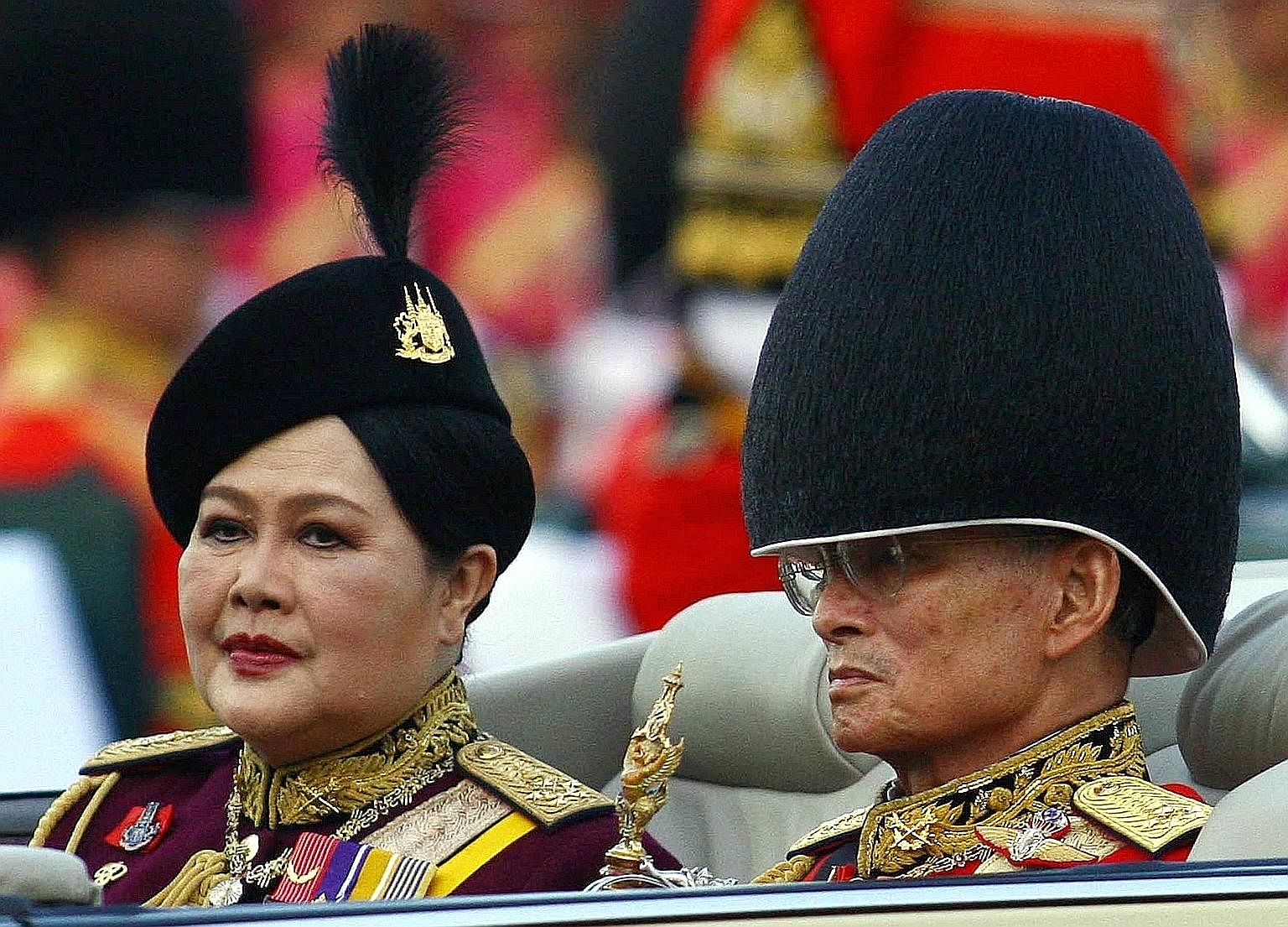
King Bhumibol - also a philosopher, musician and inventor - tried to tackle rural poverty, which endeared him to the masses early in his reign. No doubt, it was an image that was carefully nurtured by a powerful palace machinery, and shielded by a law that prescribes up to 15 years' jail for any royal insult or defamation. But the immense moral authority vested in him is not transferrable.
"In reality, we are attached to a person rather than the system," says Professor Charnvit.
This is an aristocratic system that pervades daily life in Asean's second-largest economy: From the university graduation certificates individually handed out by members of the royal family, to the "auspicious" rice seeds that farmers rush to grab at the annual royal ploughing ceremony, and to the celebration of Father's Day and Mother's Day on the respective birthdays of King Bhumibol and Queen Sirikit.
The Crown Property Bureau, meanwhile, is a major player in the Thai economy, owning sizeable stakes in conglomerates like Siam Cement Group, Siam Commercial Bank and Deves Insurance.
Economist Porphant Ouyyanont estimates its holdings were worth 1.4 trillion baht (S$54 billion) in 2014.
"Protecting the monarchy" has been used as a rallying cry to overthrow popularly elected governments.
"Yellow shirt" factions agitating against then Prime Minister Thaksin Shinawatra accused him of being republican, helping to usher in a military coup in 2006.
In 2011, his sister Yingluck Shinawatra assumed premiership after another election, only to have her government ousted by another coup just three years later.
Under the current military government, republicanism remains a dirty - perhaps dangerous - word.

Prime Minister Prayut Chan-o-cha's own interpretation of core Thai values, now taught to students nationwide, includes "being conscious and mindful of action in line with His Majesty the King's royal statements".
His government has increased surveillance of online activity and pursued lese majeste offenders with unprecedented vigour, seeing them as matters of national security.
Yet this is also a middle-income country that is grappling with significant inequality and growing disquiet among an emerging middle class which saw the governments it elected repeatedly toppled through the efforts of those who proclaim they know better.
With the military government firmly in control, Thailand's political conflict will not likely worsen in the near term, says political scientist Titipol Phakdeewanich.
But King Bhumibol's demise could raise questions about the future of the Thai monarchy as a whole.
For now, all political conflict will be set aside as the nation mourns a revered and popular monarch. What happens next is anybody's guess.

